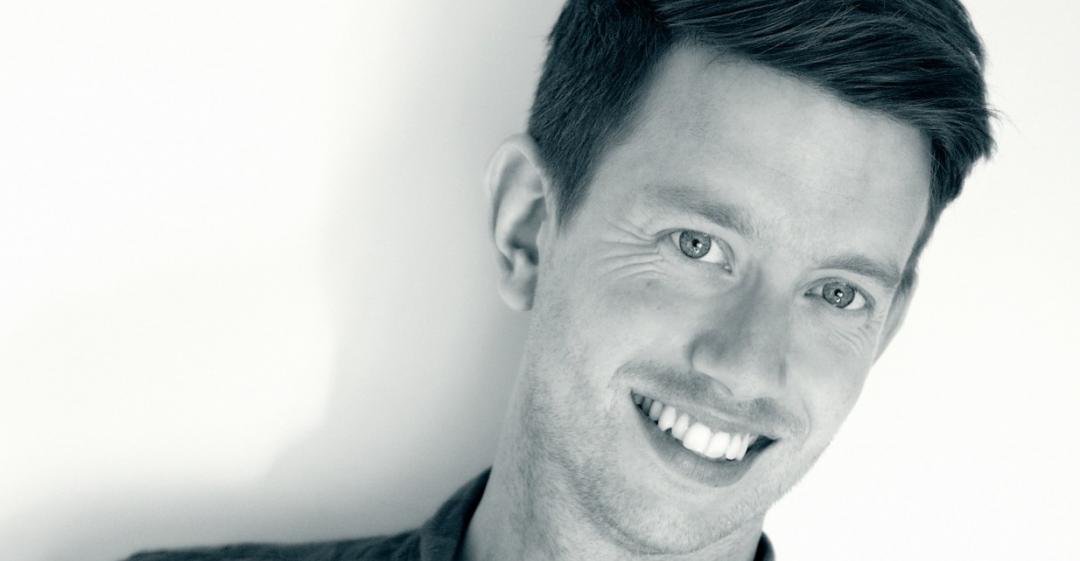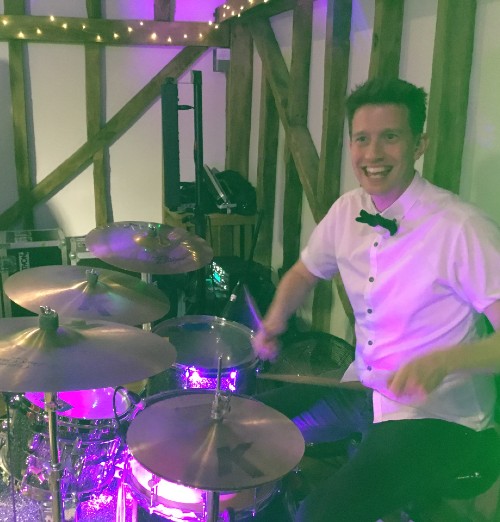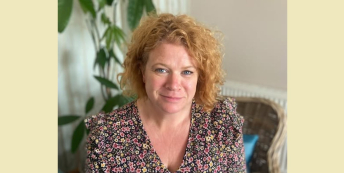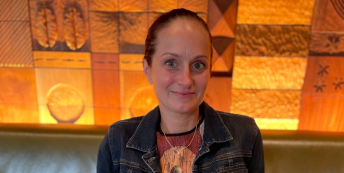“The day-to-day monotony was grinding me down.”

What work were you doing previously?
Over the past 15 years I’ve worked in schools, teaching children how to play drums.
What are you doing now?
I’m Events and Operations Manager for a community trust.
It’s a job I never even knew existed before!
Why did you change?
Whenever I told people what I did, they seemed impressed by my ‘cool’ job, but the truth was that I felt bored and unchallenged by monotonous work.
I’ve always been a musician. I was a signed artist with a major record label.
After a few years my band ended, so I started teaching drums as a way of making some extra money.
At the same time, I got married and started a family, which meant my need for a secure job increased. Because it provided stability and a regular income, the teaching gradually took over.
I tried holding onto the fact that I had a job other people envied, and that my teaching really helped some of the students, particularly those who struggled with their mental health.
But I ended each day feeling trapped and unhappy.
When was the moment you decided to make the change?
My friends and family saw how depressed my job was making me, and my wife urged me to do something about it.
I didn’t know what else I could do for work, so I started Googling ‘career change’. That led me to Careershifters, where I discovered the Career Change Launch Pad.
I was cynical and apprehensive at first, because I couldn’t see how the course would help me.
But my wife was so tired of me constantly complaining about my job, that she made me sign up!
How did you choose your new career?
Years ago, in an attempt to leave teaching behind, I set up an agency to manage bands that played at different events.
Even though the agency did well, I was too anxious about giving up the stability of teaching to focus on it properly.
But I enjoyed the work, and I knew that I wanted a career that featured music and events – whatever that might look like.
Then, just as I started the Launch Pad programme, the coronavirus lockdown hit.
I thought that would stop my career change in its tracks. But instead, it gave me extra time to work on my shift, and I also made a powerful personal discovery.
There was an incredible sense of community throughout lockdown that I hadn’t experienced before. For example, my son decided to run for charity every day, and people took the time and effort to come out and cheer him on.
Heartwarming things like this made me realise that I also needed my work to have a positive effect on the community.
Are you happy with the change?
I’m buzzing!
I know it sounds clichéd, but these days my work is so enjoyable and fulfilling, that it doesn’t seem like work.
I feel like I’ve had a lucky break, and I’m so grateful that all this has happened so quickly. I have to pinch myself on most days!
What do you miss, and what don’t you miss?
I do miss some of the students I used to teach.
But I’ve started offering private lessons to those students who really want to learn, which means I can still help them fulfil their potential.
How did you go about making the shift?
I reached out to my local council, and was given a contact in a local community trust that focuses on community and partnerships.
I spent all weekend writing and tweaking a letter to them, explaining my story, and that I’d love to do some voluntary work that helped the community.
A few weeks later, a director got in contact to explain a particular project they were working on, which was all about holding different events in community spaces, to generate income for them.
I was invited to come and see the project in action. I got on really well with the director, and she valued my background and experience so much that instead of voluntary work, I was offered paid employment.
Rather than jumping straight in, I started by working on the project for one day each week, gradually increasing my hours so that within two months, I was finally able to give up teaching.
How did you handle your finances to make your shift possible?
I’ve been lucky, in that I’ve only taken a small pay cut from changing my career.
But even if the cut had been bigger, I still would have gone for it.
Not only am I so much happier, but there’s also a lot more potential for future growth in my new career.
What was the most difficult thing about changing?
I had to work hard on convincing myself to let go of my need for security, and that I was really capable of changing my career.
I felt so stressed and anxious at the start of my shift, not just because the way ahead was so uncertain, but because I didn’t think potential employers would be willing to give me a chance.
I didn’t have a strong career background to boast about. I was also worried that I’d left it too late to change.
But I knew I didn’t want to go backwards, so I had to keep asking myself, “What have I really got to lose?”
Now I look back on all those times when I thought I needed job security, and I realise that I just wasn’t confident enough to make the changes I needed.
What help did you get? 
At the start of my shift, I contacted people I knew who worked in music or events, trying to glean as much knowledge as I could from them.
As part of the Launch Pad course, I was also encouraged to step outside of my comfort zone, so I tried contacting well-known people in both industries.
I didn’t expect anybody to respond, but I was amazed when I got a friendly reply from Emily Eavis, the organiser of the world-famous Glastonbury Festival. She took time to explain the structure of the festival, and how it all works behind the scenes, which I really appreciated.
I also met so many fantastic people on the Launch Pad course, who really helped to galvanise me. They helped me realise that I wasn’t on my own, and they also kept me accountable as my shift progressed.
A small group of us have even stayed in touch since the course finished, checking in with each-other once or twice a week.
What have you learnt in the process?
At first, I didn’t value my experience at all, but it’s what ended up getting me the work I’m doing now.
That's made me view my career potential in a much more positive way.
I’ve also learned that if you want to make a change, other people are key.
Without the support I’ve received from my family and friends, my contacts, and the Launch Pad community, I don’t know if I would have been able to make the change.
What do you wish you'd done differently?
I wish I hadn’t let self-doubt hold me back so much in the past.
I started the Launch Pad course feeling cynical about career change, and I kept questioning the process, when I should have relaxed and enjoyed it more!
What would you advise others to do in the same situation?
Try to be open to seeing your career potential in different ways.
Your job is just a small part of who you are, so don’t let fear of change stop you from putting yourself out there and having some fun.
Finally, please don’t do it alone! Reach out to as many other people as you can, and let them help you along the way.
Nathan took part in our Career Change Launch Pad. If you're ready to join a group of bright, motivated career changers on a structured programme to help you find more fulfilling work, you can find out more here.
What lessons could you take from Nathan's story to use in your own career change? Let us know in the comments below.



